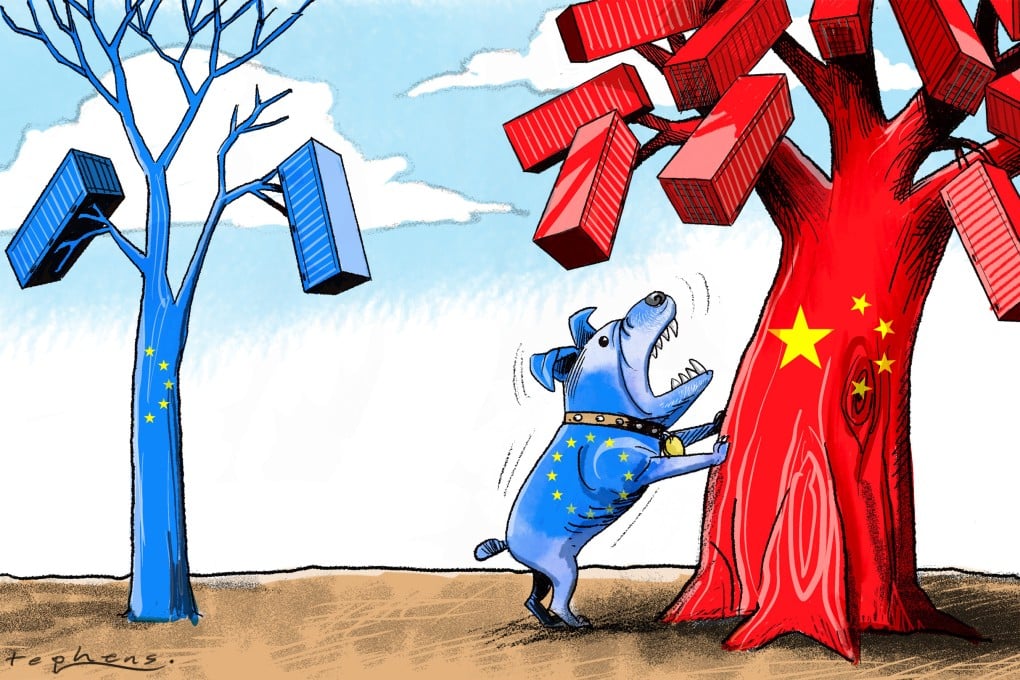Opinion | By blaming China for its trade deficit, EU is barking up the wrong tree
- Instead of complaining about the lack of access to China’s market, Brussels should raise its own productivity
- It should also rethink the many ways it is stoking bilateral tension while reducing trade, including through a tough export control regime, suspension of a bilateral investment deal, and probes into Chinese industries

Brussels attributes this “trade imbalance” to the lack of access to China’s market. EU trade commissioner Valdis Dombrovskis criticised China’s level of openness as not being “the same as the level of openness from the EU side”. Meanwhile, the bloc’s chief diplomat Josep Borrell said China’s trade surplus with Europe had more to do with poor market access than productivity issues or a greater competitive advantage.
While the EU’s concern over its massive trade deficit is understandable, it is overlooking the fundamental causes.
The fact is, China’s trade surplus is the result of the interplay of market forces. It is, first of all, partially due to the country’s manufacturing prowess. This is true not just of Europe, but also the rest of the world.
One need look no further than at US-China bilateral trade to be convinced of the competitiveness of China’s export machine. Despite an average US tariff rate on Chinese goods of around 20 per cent, China’s trade with the US broke a record in 2022. Its trade surplus in 2022 was also a record high, according to Chinese customs data.
Second, China’s trade surplus may also have to do with the EU’s weakened competitiveness, relatively speaking. From the pre-pandemic year of 2019 to 2022, while the rest of the world exported 35 per cent more goods to China, according to Ministry of Commerce data, the EU’s exports to the country increased by a mere 3.2 per cent.
